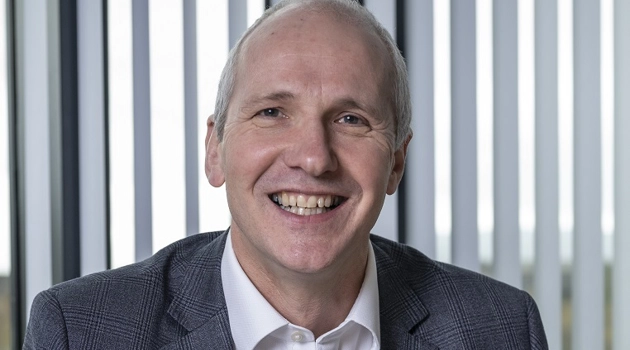
As part of its support for the Scottish Government Fair Work First agenda, HIE is introducing new conditions attached to future funding awards.
From 1 April, all organisations across the region who are applying for HIE funding will be expected to comply with the Fair Work First criteria.
These include paying all their employees at least the real living wage, which from 1 May will be £9.90 per hour for people over 18.
They should only utilise zero hours contracts when deemed appropriate and take action proportionate to the size of their organisation to address any gender pay gaps.
Fair Work First requires organisations to have in place appropriate channels for effective voice (see notes), invest in their workforce and offer flexible family friendly conditions. They should also oppose the use of fire and rehire practices.
Most organisations currently working with HIE have already adopted fair work principles. HIE chief executive, Stuart Black, said the agency wants to build on this.
He said:
“Talented people are at the very heart of success in every organisation in any sector.
“An inclusive, people-centred approach that supports workers and employers to shape their organisations together, and to develop the skills needed for a successful future, is key to a prosperous economy.
“A fair work approach helps employees to play a full and active role. This underpins high productivity, performance and innovation. It also contributes to a healthier, wealthier and more inclusive society.
“All of this is in keeping with our vision for the Highlands and Islands as a modern, high value and inclusive economy, and an attractive place to live and work.
“It’s great that fair work practice is already in place across most of the region and we look forward to supporting others to implement these important steps.”
Minister for Just Transition, Employment and Fair Work Richard Lochhead said:
“A key ambition in Scotland’s National Strategy for Economic Transformation is to reorient our economy towards wellbeing and fair work, to deliver higher rates of employment and wage growth and tackle poverty.
“Through Fair Work First we are applying Fair Work criteria to public sector contracts and grants to ensure that government funding serves to tackle in-work poverty and low wages by raising the incomes of the lowest paid and driving high workplace standards for all workers.
“I welcome HIE’s commitment to strengthening its Fair Work First approach – helping to make Scotland a leading Fair Work Nation.”
HIE has created a web page with information to help organisations to implement fair work principles, including access to a fair work tool.
There will be some exemptions to the new conditions, for example clients benefitting from non-financial HIE support, such as webinars, networking events, self-service products and general advice.
NOTE
Set up in 2016, the Fair Work Convention in Scotland set out a Framework explaining the dimensions of fair work and how they can be achieved.
- Effective voice: effective channels of communication in workplaces along with a safe environment that enable workers to contribute to discussions, be listened to and make a difference, promoting an environment of employee engagement.
- Opportunity: ensuring that everyone who wants to can access work and, in work, can develop and progress.
- Security:including stability and predictability of employment, working time and
- Fulfilment:developing and utilising skills, career advancement and employee engagement.
- Respect:ensuring workers are respected in terms of, for example, health, wellbeing and safety regardless of their role or status.
Effective voice is much more than having a communication channel available within an organisation. It requires a safe environment where dialogue and challenge are central to the organisational culture, are dealt with constructively, and where worker views are sought out, listened to and acted upon, and can make a difference. Effective voice requires workers, employers and trade unions or worker representative groups to work in partnership to make sure the right decisions are made to ensure workers are treated fairly and equitably. The co-determination of working practices is key to delivering all of the dimensions of Fair Work effectively. For more on this see https://www.gov.scot/publications/fair-work-first-guidance/pages/9/
Related Articles
Island resilience fund opens
HIE will manage the fund on behalf of Scottish Government
Recruitment under way for next Chair of Highlands and Islands Enterprise
The Scottish Government has begun recruitment to appoint a new Chair for the Board of development agency Highlands and Islands Enterprise (HIE).
Iomairt na Gàidhealtachd ’s nan Eilean a’ sireadh Cathraiche ùr
Tha Riaghaltas na h-Alba air tòiseachadh a’ trusadh gus Cathraiche ùr fhastadh chun a’ Bhùird aig a’ bhuidheann leasachaidh Iomairt na Gàidhealtachd ’s nan Eilean (HIE).
Planning application for Inverness Campus
HIE’s application is for permission to establish infrastructure, such as roads and utilities, to create serviced plots for sale to developers.
HIREP unveils ten-year strategy for regional growth
There’s a focus on renewable energy and the need to maximise economic and community benefits while driving the transition to net zero.
New tenant welcomed to Inverness Campus
The move will help facilitate the company’s further growth. Its corporate and compliance team of ten will relocate to Aurora House, with the company’s operational base remaining in Beauly.
Next phase of small business units for Wick Business Park
Project will help support economic growth and strengthen population retention in Caithness
HIE published latest business survey results
There were 1,013 responses received from enterprises across the Highlands and Islands region operating in a wide range of sectors.
HIE Board welcomes shadow member
Mary Bowman is learning what it is like to serve on the Board of a public body
Shetland pupils to be offered STEM insights
Science Skills Academy (SSA) has teamed up with Equinor to extend the roll out of pop-up Newton Rooms to Shetland.


